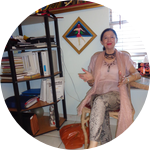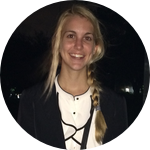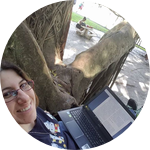About This Project
Our team targets the issues of counterfeit and substandard medicines, which kill many people around the world yearly and promote drug resistance. The main goal of our project is to develop an inexpensive, highly specific, sensitive, flexible, and easy to use bio-detection platform. Our initial target drug is artemisinin, an antimalarial that is commonly forged. The system will generate color in proportion to the amount of artemisinin present in a tested medication.
Ask the Scientists
Join The DiscussionWhat is the context of this research?
Current fake drug detection platforms are reasonably portable, but expensive. They can have high drug specificity or sensitivity, but not both. We are designing a synthetic biological compound that could rapidly achieve both in a simple assay. By binding with artemisinin, our synthetic protein will change conformation, revealing a hidden reporter motif. In addition, our “Medicoli" detector can be rapidly adapted to detect biological and chemical warfare agents, producing results within minutes with minimal modification and at a low cost. This technology has the potential to bypass bureaucratic red tape, giving consumers the power to test their own medications in real time and save countless lives throughout the world.
What is the significance of this project?
The Medicoli detector is a versatile bio-detection platform that will be able to rapidly test for new drugs. Current counterfeit detection involves two different tests being conducted simultaneously in order to achieve both a high specificity and sensitivity. Medicoli is a simple tool to use, requiring only a single test to achieve both, and it does not require a lab or expensive equipment. Its essential benefit is flexibility which, depending on the specific protein-target binding efficiency, can assist in detection of many other compounds with minimal cost and sample size. This includes biomarkers for cancer and other diseases. The intellectual properties of manufacturers will also be protected, as fake drugs are removed from the market by this efficient detection system.
What are the goals of the project?
Our goal is to develop and test this potentially lifesaving platform with artemisinin. From there, we plan to expand to different medicinal compounds, and possibly to disease biomarkers. Our specific aims are to discover and characterize the binding sites of artemisinin to several different proteins. We will use that data to construct a synthetic detector protein that binds to artemisinin strongly and specifically. This protein will be designed such that the binding of artemisinin will expose a reporter motif, allowing for rapid and quantifiable detection. The detector will then be added to a biological system to rapidly produce a high concentration in solution, and the sensitivity and specificity will be tested by the addition of artemisinin and related compounds.
Budget
This year is the first time that an interdisciplinary club at FAU has had the initiative to take part in the Global iGem competition (www.iGEM.org), which is held annually. The iGem competition is a multifaceted event requiring participants to identify a specific problem, create a concrete solution, conduct actual dry and wet-lab research and present their work at the giant jamboree in Boston. Each team is assigned a Wiki page to illustrate their idea and invention on the iGEM website.
Lab resources will include necessary methods and materials including E-coli cultivation, peptide synthesis, determination of binding sites, labeling of fusion reporter protein, development of the computational models of the system, etc.
Endorsed by
 Project Timeline
Project Timeline
Apr 12, 2017
Project Launched
Apr 30, 2017
iGEM Registration
Nov 09, 2017
Attend iGEM giant jamboree
Meet the Team
Affiliates
Affiliates
Team Bio
OwlGEMS is a multidisciplinary group of students and staff from Florida Atlantic University. We are composed of undergraduate and graduate students with multiple majors: biological science, biotechnology, computer science, communication, bioengineering, psychology and graphic design. We have decided to put a halt to the rampant issue of counterfeit medications around the world. We are brought together by our passion for global health advancement and our love of science.
Rachel VanZant
BS Biological Sciences undergradute student
Douglas Holmes
OwlGEMS member
MS Thesis Biological Science Student
Valentina Buitrago Betancourt
SESF-American Microbiology Society member FAU chapter
Amy Makler
David Dunleavy
Lab Notes
Nothing posted yet.
Additional Information
Your contributions will be essential to our project! We would need to purchase research materials, pay registration and participation fees for the competition. Donations will also benefit to cover airfare and lodging during the Giant Jamboree. Help us unleash our creativity to solve real life challenges with cutting edge science.
Project Backers
- 18Backers
- 9%Funded
- $364Total Donations
- $20.22Average Donation





